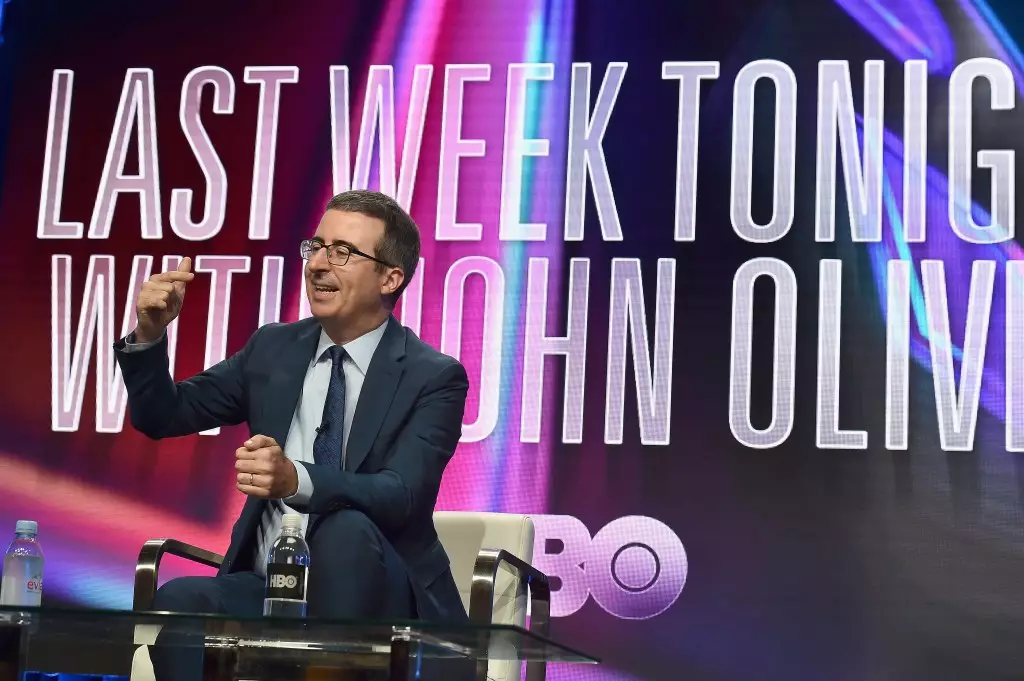In a world increasingly sensitive to public discourse, few mediums provoke as much debate as the late-night talk show format. John Oliver’s “Last Week Tonight” has gained repute for its incisive and often scathing critiques of various societal issues, particularly around government and corporate negligence. However, with great power comes great responsibility, and this adage rings particularly true in light of a forthcoming legal battle involving Oliver and an unfortunate healthcare executive. The episode in question aired on April 14, 2024, centering on Medicaid fraud and implications for the vulnerable, but it obtained a new layer of controversy when Dr. Brian Morley, the former medical director of AmeriHealth Caritas, filed a defamation lawsuit against Oliver for remarks that he claims misrepresented his statements during a 2017 administrative hearing.
While the lawsuit evolves, a slew of questions emerges about the nature of public commentary, the balance of critique and misinformation, and the protections afforded by the First Amendment, which shields individuals from defamation claims unless the statements are shown to be made with actual malice. This case emerges as not just a legal dispute but as a reflection of broader tensions between free speech and responsible media commentary.
The Heart of the Matter: Allegations of Defamation
The crux of Dr. Morley’s complaint rests on Oliver’s claim that the doctor condoned neglectful medical practices toward severely impaired patients, specifically implying that Morley suggested it was acceptable for individuals to remain in unclean situations for prolonged periods. According to the 23-page legal filing, Oliver’s escalation of Morley’s statements, culminating in vulgar commentary—”fuck that doctor with a rusty canoe”—aims to demonstrate that not only did Oliver misrepresent what was said, but he also sought to incite outrage among viewers for entertainment value. This accusation raises critical issues about the ethics of sensationalism in media—a tactic Oliver’s show has utilized to great effect.
The challenge for Oliver and his team lies in countering these allegations without compromising their creative freedom or inertly accepting blame for the collateral damage such satire can create. By blending facts with biting humor, does a show like “Last Week Tonight” become liable for crossing into defamatory territory? Or is this merely the risk taken by those who engage with public figures and contentious topics, especially when the intent is to foster discussion?
The Role of Context and Intent
Dr. Morley’s legal team has invoked a multitude of arguments, suggesting that Oliver and his producers had access to the complete administrative hearing and thus carried a responsibility to ensure accurate representation. Moreover, the allegation that Oliver’s team selectively edited Morley’s testimony embodies a significant risk of diminishing the First Amendment defense. This raises important questions: How much context must be provided in commentary, and should programs like Oliver’s be held accountable for their interpretations of complex issues—especially when these interpretations significantly disrupt individual lives?
The need for context in discussions centered on sensitive subjects like healthcare is paramount. Morley contends that his statements were misconstrued; however, the interpretation put forth by Oliver incited a “public outcry” and painted the physician as morally bankrupt. This situation underscores a dual-edged sword: while the show’s intent may have been to spark debate over healthcare injustices, doing so recklessly can lead to damaging repercussions for those portrayed.
Potential Implications for Media Commentary
The fallout from this impending case may set legal precedents concerning the boundaries of satirical commentary. John Oliver has faced legal scrutiny before, but the trajectory of this lawsuit signals a paradigm shift. If Dr. Morley’s allegations stand in a court of law, there may be consequences extending past Oliver to other media platforms and their hosts, compelling them to revisit their editorial practices.
This case could redefine how humorists navigate the treacherous waters of critical discourse and assist in shaping future interactions between public figures and those who comment on their actions. Fostering a more nuanced understanding of these interactions could perhaps lead to a modern code of ethics in satirical journalism, where accountability doesn’t compromise freedom but instead enhances it.
In an age where the accuracy of information is paramount, the unfolding of this legal drama not only influences the future of John Oliver’s show but also reflects the broader societal need for responsible journalism and the right to critique. The convergence of entertainment, information, and legal consequence promises a complex and thoroughly engaging narrative for all parties involved.
